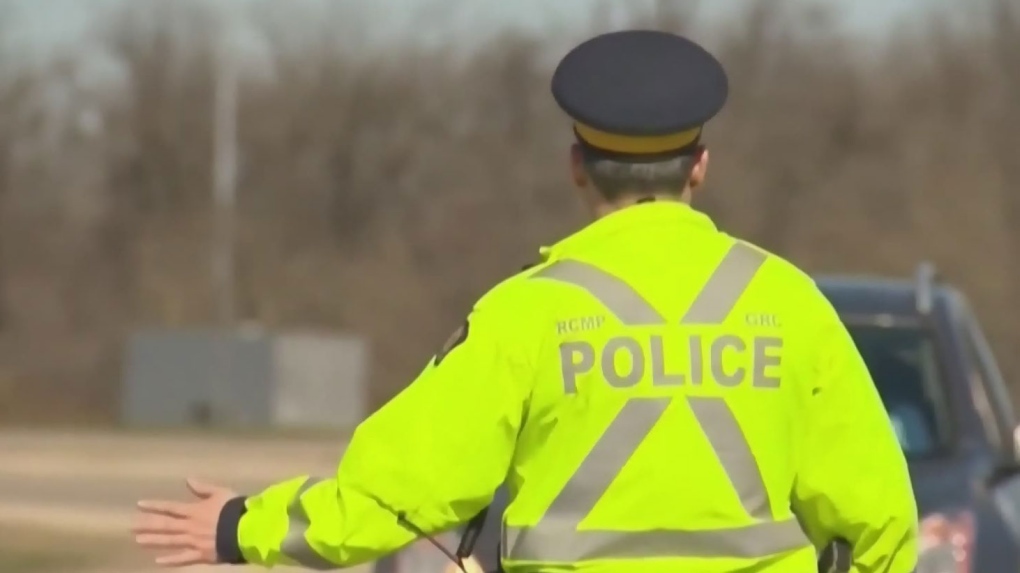Provincial police force would be a 'billion-dollar boondoggle': rural municipalities
Alberta municipalities of all sizes are speaking out again against a proposed provincial police force after more details on what a transition would look like were released by the province last week.
Tanya Thorn, mayor of Okotoks and vice-president of towns for Alberta Municipalities, said she doesn't know what problem the province is trying to solve with bringing a provincial police force to Alberta.
“You can't evaluate something if you don't know what you're trying to fix,” Thorn said.
The answer Thorn often gets as to why the province wants to transition away from the RCMP is that the federal government doesn't allow the province to have the control and oversight it wants, but the mayor said that isn't the experience of municipalities that work with the RCMP.
Municipalities support working to make policing better in Alberta and are aware of the challenges of the current model, Thorn said, but she doesn't see those problems improving with a switch to a provincial police force.
On Aug. 16 the province released more details on a proposed provincial police force roll out. Alberta Minister of Justice and Solicitor General Tyler Shandro said a provincial police force would be a better option than the RCMP for the protection of rural and Indigenous communities.
The proposed force would add 275 front-line officers to the smallest 42 municipalities in the province, with a goal of prioritizing rural communities, according to the UCP.
But Thorn said the province could put those 275 members into those communities right now, without switching over to a provincial police force.
“I think there's a lack of understanding. There's this belief that the feds control everything that our RCMP do here in the province,” Thorn said.
While there is federal oversight of the RCMP organization, Thorn said the priorities are determined by the provincial government.
“If the provincial government wants to be able to put more police officers on the front line on rural policing, they can, today, right now. They just have to change that budget,” Thorn said.
If the province wanted more integration of mental health supports or specialized units, Thorn said the provincial government could do that by changing the priorities it sets with the RCMP.
“For them to say they can't do those things, it's categorically incorrect,” Thorn said.

In the spring rural municipalities across Alberta voted to reject a provincial police force and showed support for the RCMP - 70 per cent of the 69 members supported the resolution.
Paul McLauchlin, president of the Rural Municipalities of Alberta (RMA), said the province is pushing back against Ottawa because of a perception that Alberta can't have control and doesn't have a voice.
But McLauchlin said the province is doing that same thing to municipalities, by proceeding with a plan municipalities are against while giving these communities little say in the matter.
“You're treating us like you're being treated, supposedly by the feds,” McLauchlin said of the province's behaviour.
“You're following the same behavior pattern that you're complaining about. It's shocking to us, to be quite honest.”
According to a survey conducted by the National Policing Federation, some 84 per cent of Albertans want to retain the Alberta RCMP outright or with improvements. Eighty per cent of Albertans who are served by the RCMP say they are satisfied or very satisfied with the policing they receive. Some 90 per cent of Albertans want to see a detailed accounting of dollars on a provincial policing project before a decision is made.
Another challenge a provincial police force would continue to face is high vacancy rates across Alberta, Thorn said, as many people do not want to become officers. The province won't solve that challenge with a provincial force, as they will be forced to recruit from an even smaller pool in Alberta compared to the one offered by a national force, the mayor said.
“The RCMP has a far deeper pool, in some respects,” Thorn said.
If local residents become local police officers, it can be challenging for the community, Thorn said, as they might be too close to the community to police it fairly and there will be conflicts with the position that can't easily be solved.
- 'They're not listening': Alberta mayors and First Nations caution against provincial police force
- Kenney says rural Alberta would welcome provincial police, promises no extra cost to municipalities
Even with the promise of more officers in rural communities, Thorn isn't convinced this will have a direct result on a decrease of crime. The province is proposing a minimum number of RCMP officers in each rural detachment, but Thorn said a community may not have the call volume to warrant the number of officers proposed.
“It's giving this guise of, 'We're going to give more officers in rural areas so therefore that's going to make it better,' but I don't know if they've got the data that actually supports that,” Thorn said.
The UCP plan proposes a minimum of 10 officers in each detachment across the province, with 275 more officers devoted to rural communities, but McLauchlin said the move won't guarantee rural crime issues will disappear.
“The key thing about rural policing is place and time,” McLauchlin said, adding these officers will still be forced to police large areas, which means they can't necessarily be in the right place at the right time.
Instead of spending the money on the transition to a provincial police force, McLauchlin and municipalities across the province would rather see funds go toward the root causes of crime, including cash for judicial reform, poverty, mental health, and addictions.
“If the Government of Alberta is sitting on a few hundred million dollars that they're itching to spend, spend it on the RCMP right now,” McLauchlin said.
“I'm sitting here with a government that a year ago was saying we need to be fiscally prudent, which we are, and then I'm watching them just want to spend money really bad,” McLauchlin said.
“This is going to be crazy expensive. It's going to be a billion-dollar boondoggle. We see it coming and for some reason this government wants to proceed with it,” McLauchlin said.
The estimated cost for the service hasn't yet been revealed by the UCP, but currently the federal government kicks in nearly $200 million each year to fund the RCMP in Alberta - around 30 per cent of the total cost of the service, while the province and municipalities pay the rest. The bill to transition from the RCMP to a provincial police force has been pegged at between $366 million and $371 million, according to the provincial government's own estimates.
 (Supplied/RCMP)
(Supplied/RCMP)
The province has stated it will guarantee municipalities won't have to pay any more for this service, but local leaders are skeptical of that claim.
“Political promises only last as long as the government, or only last as long as the premier or minister,” McLauchlin said.
The provincial government's downloading of services onto municipalities has long been a problem, and Thorn said if the cash to fund a provincial force is coming from provincial coffers, she wonders where it would be cut from, and whether those cuts, in turn, would be downloaded onto municipalities.
Local leaders want to see the province stop proceeding with its policing plan, Thorn said, and turn its focus back toward improving Alberta's current RCMP policing system.
“What they need to do, if they really are committed to addressing public safety and improving public safety in the province of Alberta, then let's sit down and actually have a ground-up conversation on the challenges we've got with the current system,” Thorn said.
Curtis Zablocki, the commanding officer of the Alberta RCMP, said in an emailed statement that the RCMP has always worked alongside the Alberta government.
“Our budget and staffing levels are determined by the Government of Alberta. The provincial policing priorities are developed with their oversight and approval, and we report on strategic and budget performance measurements on a regular basis,” Zablocki said.
“Open communication and consultations with community leaders; county and municipal governments; chiefs and councils; the Alberta Municipalities Association; the Rural Municipalities of Alberta Association; the Interim Police Advisory Board; and Albertans have positioned the Alberta RCMP to continue responding and evolving as a police service. I am grateful for our continued ability to collaborate and work together to address the needs of communities and citizens.”
CTVNews.ca Top Stories

opinion Tom Mulcair: Prime Minister Justin Trudeau's train wreck of a final act
In his latest column for CTVNews.ca, former NDP leader and political analyst Tom Mulcair puts a spotlight on the 'spectacular failure' of Prime Minister Justin Trudeau's final act on the political stage.
B.C. mayor gets calls from across Canada about 'crazy' plan to recruit doctors
A British Columbia community's "out-of-the-box" plan to ease its family doctor shortage by hiring physicians as city employees is sparking interest from across Canada, says Colwood Mayor Doug Kobayashi.
'There’s no support': Domestic abuse survivor shares difficulties leaving her relationship
An Edmonton woman who tried to flee an abusive relationship ended up back where she started in part due to a lack of shelter space.
opinion King Charles' Christmas: Who's in and who's out this year?
Christmas 2024 is set to be a Christmas like no other for the Royal Family, says royal commentator Afua Hagan. King Charles III has initiated the most important and significant transformation of royal Christmas celebrations in decades.
Baseball Hall of Famer Rickey Henderson dead at 65, reports say
Rickey Henderson, a Baseball Hall of Famer and Major League Baseball’s all-time stolen bases leader, is dead at 65, according to multiple reports.
Arizona third-grader saves choking friend
An Arizona third-grader is being recognized by his local fire department after saving a friend from choking.
Germans mourn the 5 killed and 200 injured in the apparent attack on a Christmas market
Germans on Saturday mourned the victims of an apparent attack in which authorities say a doctor drove into a busy outdoor Christmas market, killing five people, injuring 200 others and shaking the public’s sense of security at what would otherwise be a time of joy.
Blake Lively accuses 'It Ends With Us' director Justin Baldoni of harassment and smear campaign
Blake Lively has accused her 'It Ends With Us' director and co-star Justin Baldoni of sexual harassment on the set of the movie and a subsequent effort to “destroy' her reputation in a legal complaint.
Oysters distributed in B.C., Alberta, Ontario recalled for norovirus contamination
The Canadian Food Inspection Agency has issued a recall due to possible norovirus contamination of certain oysters distributed in British Columbia, Alberta and Ontario.


































